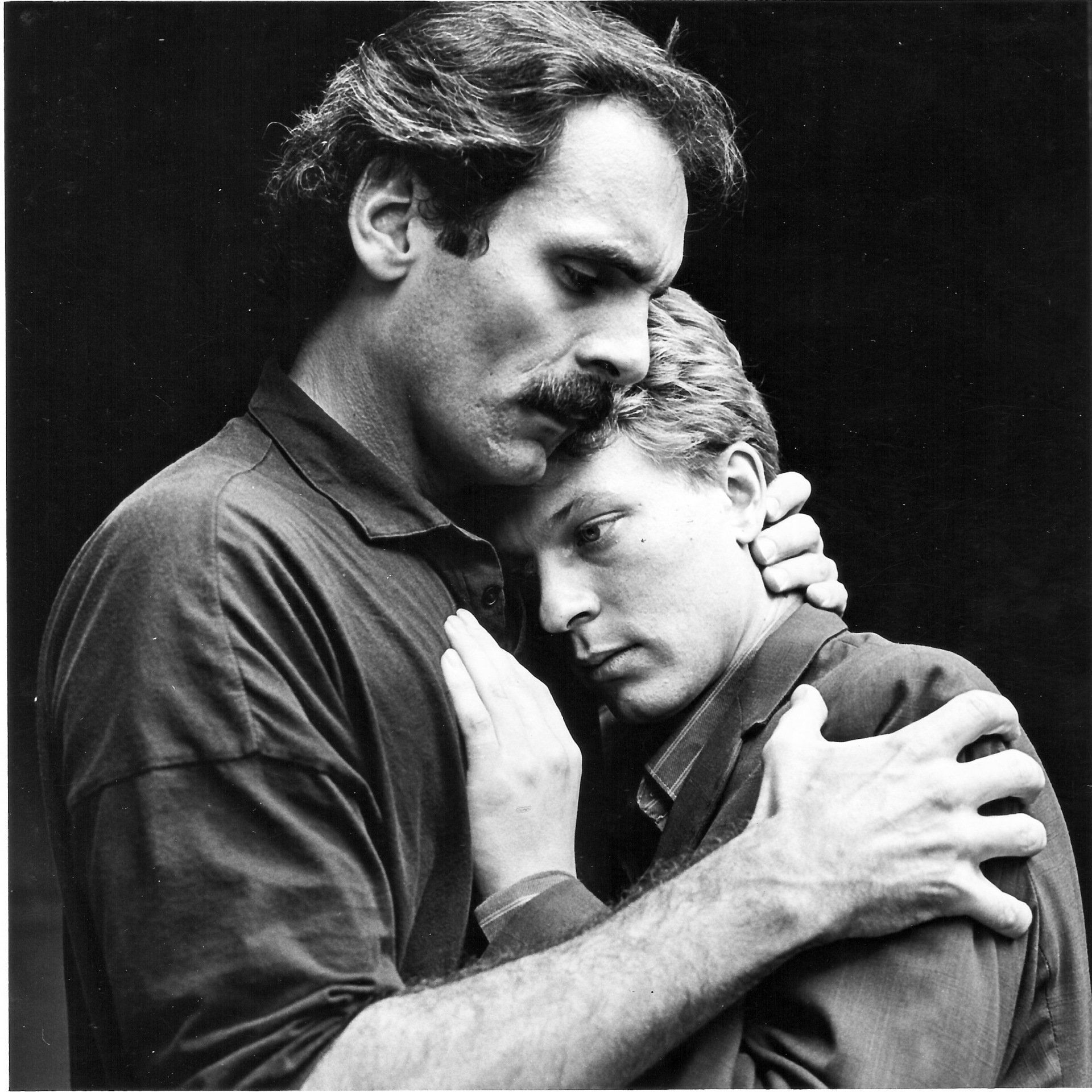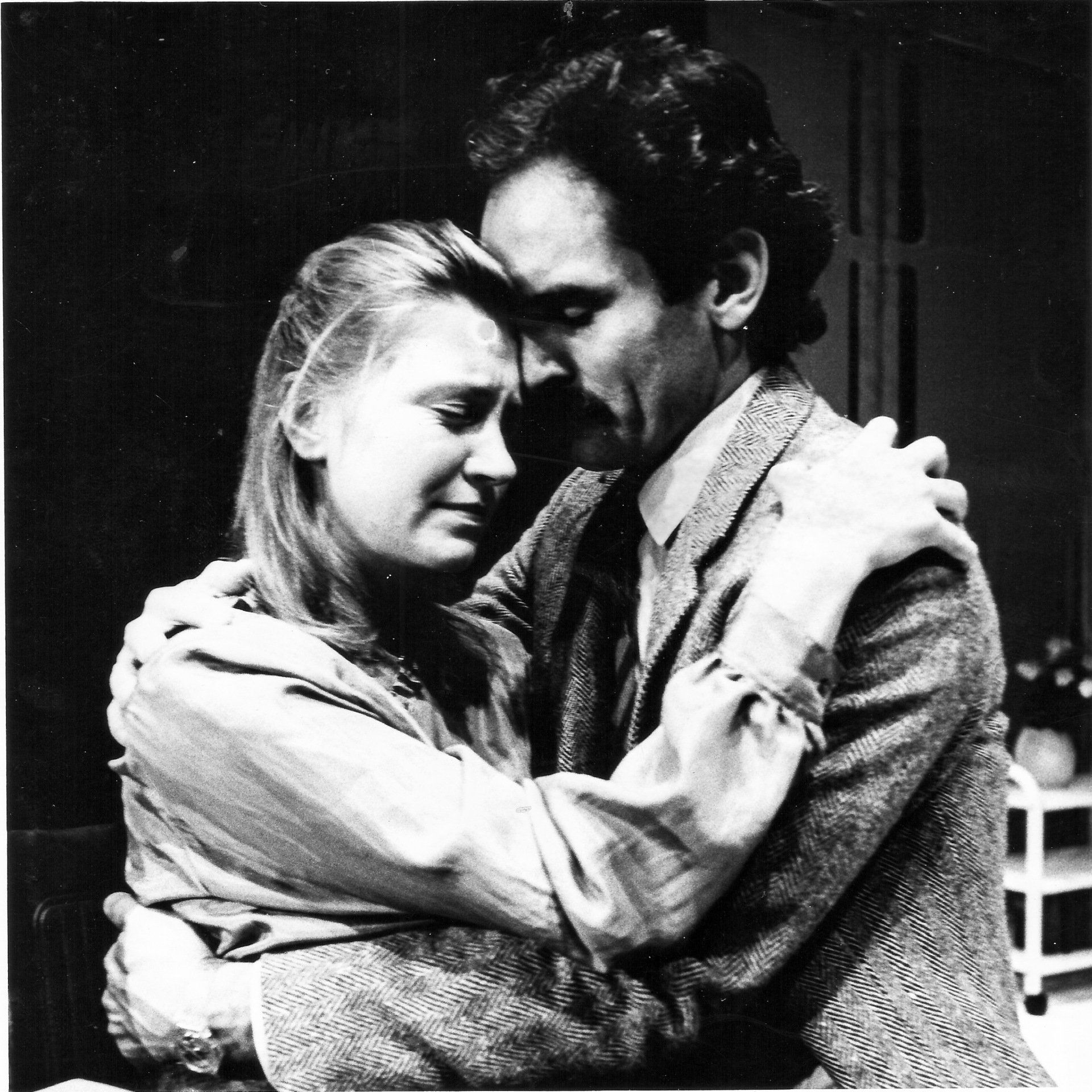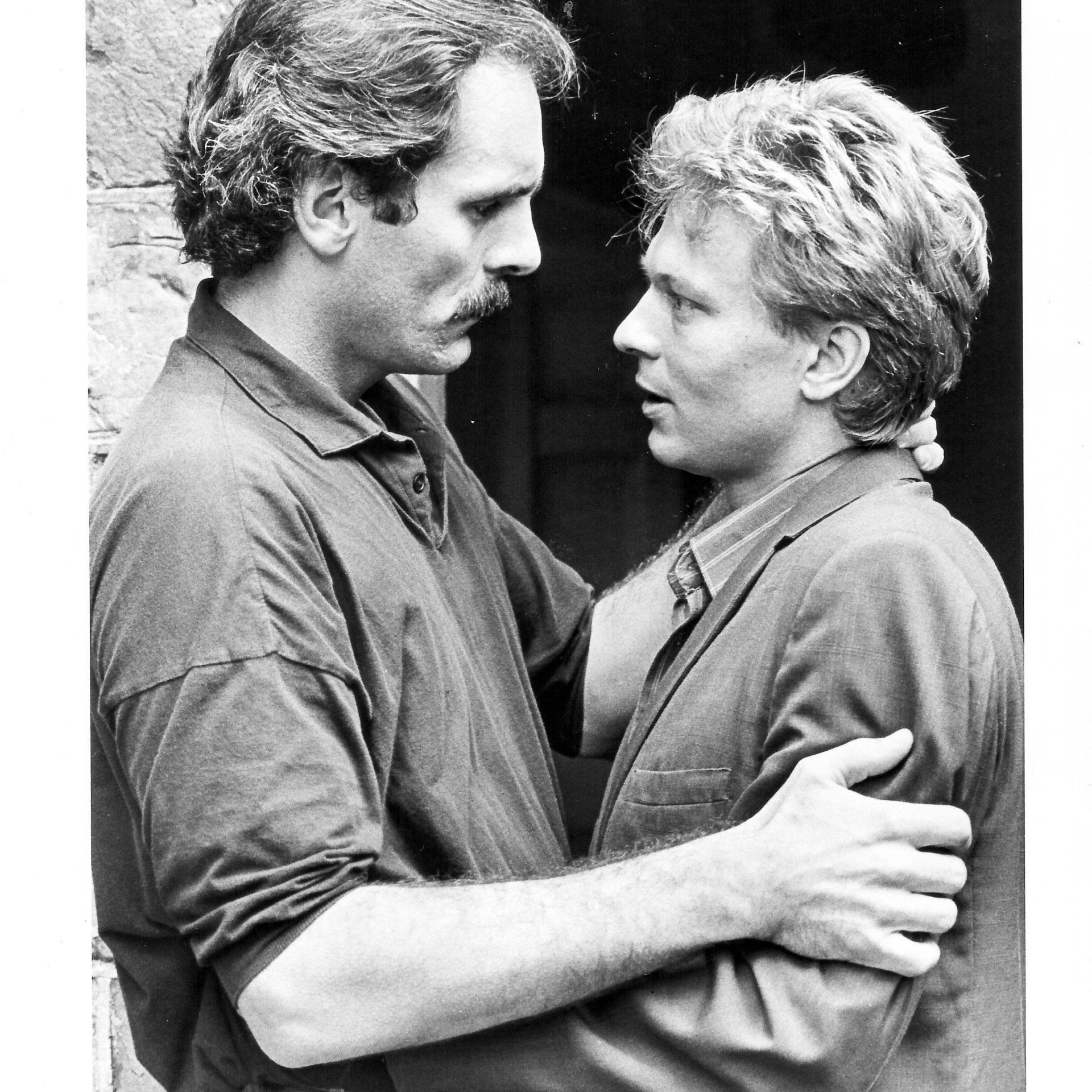THE NORMAL HEART
by Larry Kramer
The Cast
Craig Donner
Paudge Behan
Micky Marcus
Derek Champan
Ned Weeks
Anthony Newfield
Dr. Emma Brookner
Gabriel Reidy
Bruce Niles
BJ Hogg
Felix Tuner
Joe Taylor
Ben Weeks
Clive Geraghty (Courtsey of the Abbey Theatre)
Tommy Boatwright
Jonathan Arun
Hiram Keebler
Conor Mullen
The Production was designed by Brian Power and Barbara Bradshaw
Lighting by Leslie Scott
On tour the role of "Felix" was played by Conor Mullen
The Role of Hiram Keebler was played by
The Production ran at Project Arts Centre Dublin for 6 weeks in August /Sept 1987
it toured in in Ireland January /February1988
Limerick
Sligo
Waterford
Cork
Blackrock
Tralee
The Normal Heart is a largely autobiographical play by Larry Kramer.
It focuses on the rise of the HIV/AIDS epidemic in New York City between 1981 and 1984, as seen through the eyes of writer/activist Ned Weeks, the gay founder of a prominent HIV advocacy group.
Ned prefers loud public confrontations to the calmer, more private strategies favored by his associates, friends. Their differences of opinion lead to frequent arguments that threaten to undermine their mutual goal.
Ned Weeks struggles to pull together an organization focused on raising awareness about the fact that an unidentified disease is killing off an oddly specific group of people: gay men largely in New York City.
Dr. Emma Brookner, a physician and survivor of polio, as a consequence of which she is using a wheelchair, is the most experienced with this strange new outbreak and bemoans the lack of medical knowledge on the illness, encouraging the abstinence of gay men for their own safety, since it is unknown yet even how the disease is spread.
Ned, a patient and friend of Brookner, calls upon his lawyer brother, Ben, to help fund his crisis organization; however, Ben's attitude toward his brother is to give merely passive support, ultimately exposing his apparent homophobia. For the first time in his life, meanwhile, Ned falls in love, beginning a relationship with New York Times writer Felix Turner.
The increasing death toll raises the unknown illness, now believed to be caused by a virus, to the status of an epidemic, though the press remains largely silent on the issue.
A sense of urgency guides Ned who realizes that Ben his brother, is more interested in buying a two-million-dollar house than in backing Ned's activism. Ned explosively breaks off ties to his brother until Ben can fully accept Ned and his homosexuality. Felix, meanwhile, reveals to Ned his belief that he is infected with the mysterious virus.
Ned next looks to Mayor Ed Koch's administration for aid in financing research about the epidemic that is quickly killing off hundreds of gay men, including some of Ned's personal friends. Although he continues to try to strengthen interactions with the mayor, Ned ruins his chances when his relentless and fiery personality appalls a representative sent by the mayor.
Dr. Brookner gradually takes the role of activist herself, noting the epidemic's appearance in other countries around the world and even among heterosexual couples. Although she desperately asks for government funding for further research, she is denied; the rejection releases in her a passionate tirade against those who allow the persistence of an epidemic that is taking the lives of the homosexual individuals already marginalised by the government.
Ned's conflict with Bruce comes to a head, and their organization's board of directors ultimately expels Ned from the group, believing his unstable vehemence to be a threat to the group's attempts at more calm-mannered diplomacy.
As Felix's condition worsens, he visits Ben Weeks in order to make his will and with a hope of reconciling Ben with his brother.
Felix dies shortly after this visit to Ben, and Ned blames himself for Felix's death, lamenting that he did not fight hard enough to have his voice heard.
ew Paragraph
the fight to get the show on
What it took to make the production happen in Ireland
When I was in New York in 1985 scouting shows for the Dublin Theatre Festival of which I was Program Director, I wandered in to the Public Theatre to see what was on that had tickets available.
Brad Davis was starring in a new show called The NORMAL HEART which was previewing that week.
Until I sat at the production, I knew nothing about HIV or AIDS and had not heard of them. Ireland in fact, did not know about AIDS or HIV officially, and it was being totally ignored in the media - it was a "gay disease" of some kind in New York and best avoided.ignored.
The shows rights were tied up for the UK and I had to wait until the production at the Royal Court finished before the rights for Ireland became available in 1987.
With my business partner Myra Geraghty, we set about creating a production for Ireland. I felt the best venue for the show was the Project Arts Centre, I had been the Artistic Director of the theatre there in 1983/4 and we managed to get some dates in August of that year.
The two next problems were raising the money to do a play on such an incendiary subject, and second getting good actors willing to perform in it. Homosexuality was still illegal in Ireland at the time.
I felt it was important to get "an American actor" from New York to play the, lead role of NED WEEKS , as they wold bring a closer and more immediate understanding of the play and the role to the show.. Luckily we were through a friend of min in New York find Anthony Newfield who came at quite short notice and made the production something special.
Information about HIV/Aids was being suppressed in Ireland at the time, there was no official literature - only Dr. Derek Freeman was pioneering work on HIV here. I managed to get him come and talk to the cast during rehearsals, and he lent us some slides which we used during the production.
We tried getting sponsorship, and no one would touch the subject even the blood transfusion board ran away from the project. But Myra Geraghty , my business partner, persevered, and we found the money got the show on - to enormous successand acclaim .
After the performances you could often see people totally changed by the show - just weeping in the street outside the theatre.
The following year, the Arts Council of Ireland gave us a grant to tour the production nation-wide again to great success and full houses.
The only picture we released was the one of Conor Mullen and Anthony Newfield in embrace, and it was fantastic to see usually conservative regional newspapers use the picture.
Anthony Newfield & Conor Mullen
The Photo is by Ameila Stein, it was taken the first day of rehearsal at the rehearsal room.
It was at lunchtime and after the first reading of the show- The Photography caught the mood of the cast and the show and became its iconic image
Gabriel Reidy & Anthony Newfield
Gabriel who had just created Fragments of Isabella with me played the Doctor - a production shot by amelia Stein









